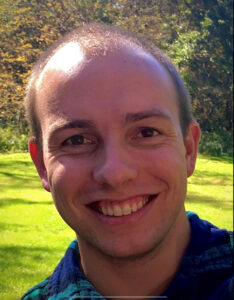By Patrick Schmadeke
Evangelization in the World Today

I drove away energized from the National Association of Lay Ministry Summit held in Chicago last month. The changing landscape of the world around us, and the desire to be responsive to those changes, was palpable among my fellow lay ministers from across the country. The range of settings was inspiring: mental health and disabilities, parish ministry, religious order ministry, national Catholic research organizations, seminary formation staff, multicultural ministry, faith formation for high schoolers, college campus ministry. The list could go on.
Our time together was spread across five panel discussions. What follows are some of the many insights shared by panelists.
On ministerial identity, panelists noted that ministry is rooted in a call from God that is shaped by one’s community. The idea that we are constantly rewriting our ministerial identity resonated — just when we think we’ve understood our identity, we experience something that shifts or deepens our self-understanding. The role of parish communities to discern the charisms of their people, and then nurture those gifts, was emphasized.
On diversity, a panelist noted that in her experience, “the Church wants my culture’s food and dance and music but not the theology. We need to want it all. Give us the whole spread.” With young people checking out of the Church, another panelist named generational diversity. Young people have a different set of priorities: “I wish the Church would stop answering the questions I’m not asking.” Another observation that resonated: “the farther we are from the problem the more likely we are to philosophize about it.” We have to be more responsive to the realities on the ground.
On co-responsibility and synodality, a panelist noted that while co-working or collaboration is essentially a partnership without a share in authority, co-responsibility (a term given to us by Pope Benedict XVI) is a shared “vestedness” in the same mission and authority of baptism. Co-working can be a delegated power; co-responsibility is about baptismal agency. While our American minds tend to see relationships through the lens of power, the Second Vatican Council moved towards the lens of gift.
It is not so much that the pope is at the top of a pyramid of power. Rather, in collegiality, the pope is a member of the College of Bishops, which is part of the entire people of God baptized for mission. We are all baptized priest, prophet, and king, and the space for communal discernment that synodality creates helps us live out that mission. A panelist from the Vatican noted that lay ministry in Latin America and Africa is way ahead of the curve. Synodality can help our U.S. context catch up.
On formation, a panelist noted that knowledge of doctrine is valuable only if it is at the service of the Gospel. Formation is intellectual, spiritual, human and pastoral. All four dimensions are essential. Another panelist recalled that Pope Francis said, “God bless conflict,” because conflict leads to a crisis that leads to institutional openness, which leads to transformation. Of course, some conflict is not God-blessed. Finally, we need to be bearers of the kingdom. When we meet people, they ought to walk away from that encounter knowing that God loves them. That’s what evangelization looks like.
The final panel was on ministerial setting. Some recent research on lay ministers suggested that burnout is not so much the problem as people not having the bandwidth to do all the work asked of them. One panelist, who executes a Lilly grant that provides funding to form Hispanic lay ministers at one of 18 partner universities, talked about the difficulty finding Hispanic lay people willing to step into these roles from the more Hispanic-dense pockets of our country. Hispanics in these settings tend to be immigrants or the children of immigrants, and there is a great deal of socio-cultural pressure for them to pursue a career more financially rewarding. This pressure was not as present with generations further removed from when the family immigrated.
The Church and the world are complicated places. I am grateful to have seen the nation-wide conversation about how lay ministers contribute to the mission of the Church in our country. If we are to be leaven in the world, this is a conversation the whole Church needs to be having.
(Patrick Schmadeke is director of evangelization for the Diocese of Davenport.)








